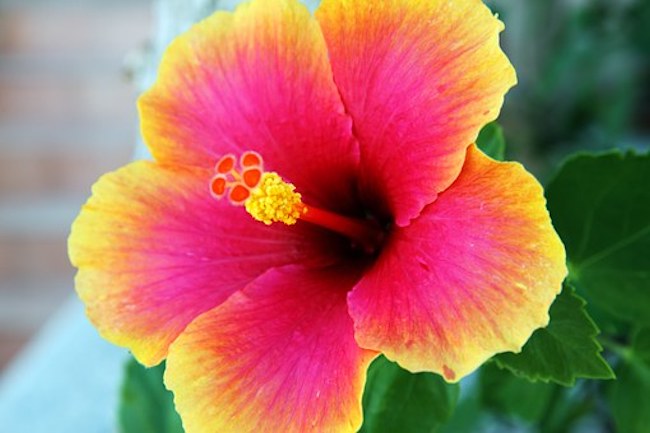Hibiscus for High Blood Pressure by Dr. Joseph Mercola for Mercola
The news about the effects of hibiscus on high blood pressure continues to grow, offering promise to those looking for natural ways to control this common condition. I’ve written previously about the positive ways this plant can help your heart and overall health; now new research suggests that its effectiveness may be even greater than what’s been reported.
I’ll explain the history, discuss the uses of the colorful flower and share tips on how to incorporate it into your overall diet so you can enjoy both its flavor and benefits.
Hibiscus ‘Sour Tea’ Lowers Blood Pressure
Researchers from Mashhad University in Iran conducted a randomized controlled trial to evaluate whether Hibiscus sabdariffa, aka sour tea, is helpful for those with Stage 1 high blood pressure.1 They recruited 46 patients and created two groups: a control group and a case group.
Everyone had their blood pressure taken before starting the study. The control group continued with their regular routine of lifestyle and dietary modifications for the condition. The case group took two cups of hibiscus tea every day, continuing the regimen for a full month. At the end of the month, each participant’s blood pressure was measured again.
Both groups enjoyed “a significant reduction” in their systolic blood pressure, “ … but the mean reduction in systolic and diastolic blood pressure was significantly higher in the case group.”2 Conclusively, the authors advised that drinking hibiscus tea twice a day, along with lifestyle changes, can help those dealing with elevated blood pressure. The team additionally noted that hibiscus is a plant:
“ … containing carbohydrates, proteins, fatty acids, flavonoid, minerals, and vitamins. Studies mentioned that this herb has anticancer, antibacterial, anti-oxidant, nephro- and hepato-protective, diuretic, anti-cholesterol, anti-diabetic, and anti-hypertensive properties.”3
This is great news for those who are interested in natural answers to their health conditions; it’s also great news for your wallet, as hibiscus tea is significantly less expensive than medication. It grows in many areas across the globe and is helpful to the environment as well.4
Hibiscus tea can complement your overall strategy to managing high blood pressure, so you can take charge of your health.
Hibiscus’ History of Helpfulness With High Blood Pressure
This important work builds on previous studies, conducted by scientists from Romania, Poland and Australia in 2015. This group of researchers collected information from four databases to survey what’s already known about the herb and to look for patterns across the published studies.
Noting that hibiscus has long been associated with treating arterial high blood pressure, but that not enough studies have been published to support the claims, they focused on determining its potential to help with cardiovascular issues. They conducted a meta-analysis of randomized controlled trials and concluded that hibiscus had a “significant effect” in lowering both systolic blood pressure and diastolic blood pressure.5
A 2009 study, published in the Journal of Alternative and Complementary Medicine, offers insights into the role of sour tea in overall health. According to the authors, the use of hibiscus significantly reduced triglycerides, low density lipoprotein-cholesterol and total cholesterol for those who have Type 2 diabetes.6
In this trial, 60 participants were recruited to consume either hibiscus tea or black tea. The researchers wanted to determine which type of tea offered the greatest hypolipidemic effects. Each person agreed to providing a fasting blood sample, both at the start of the study and when it concluded. Their blood was tested “for evaluation of lipids, lipoproteins and apoproteins.”
Fifty-three of the original 60 were able to complete the study; researchers found that sour tea, or that from H. sabdariffa, effectively influences the number of lipids in the blood of patients who have diabetes.




